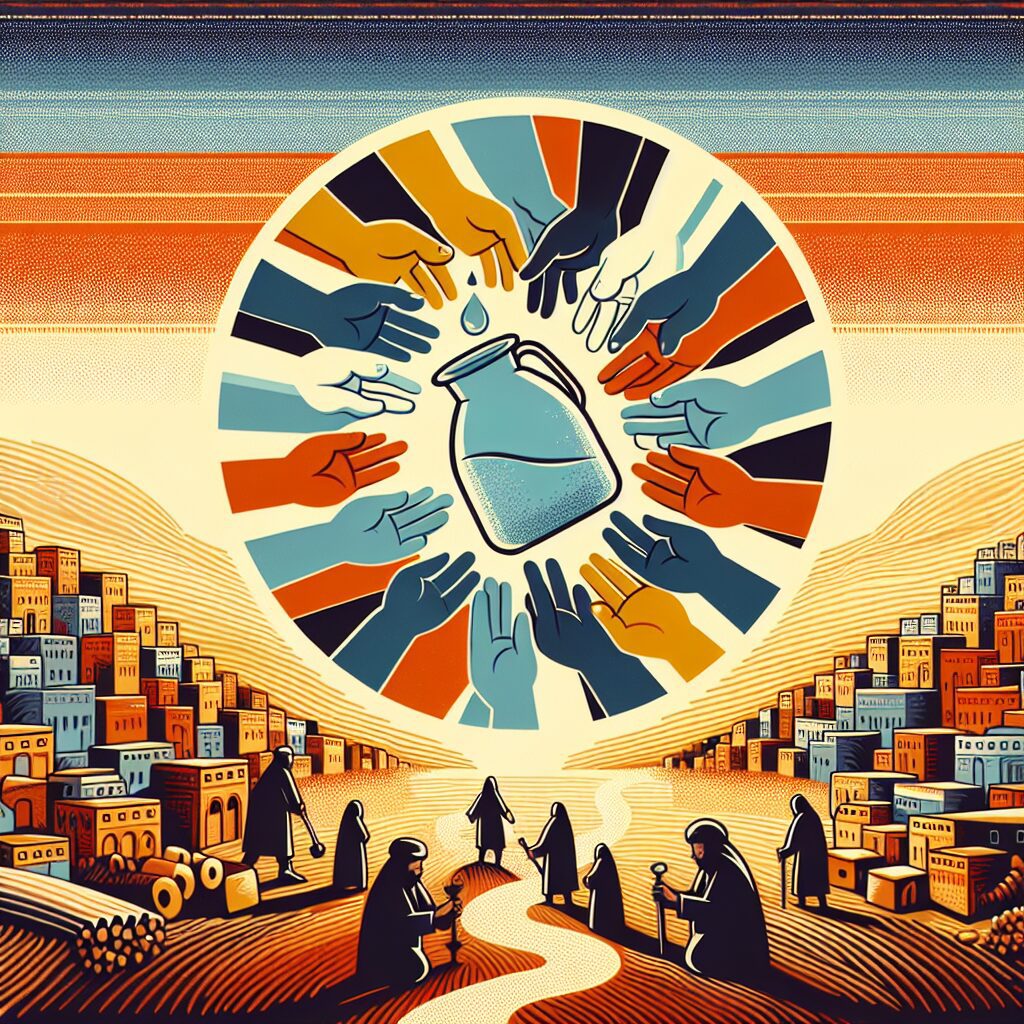Title: Facing the Tide: Kabul's Looming Water Crisis and Family Survival
Meta Description: Discover how Kabul's alarming water crisis impacts families like Bibi Jan's, choosing daily between water and food. How close is Kabul to a dry 2030?
As I poured my morning cup of tea today, a seemingly simple act felt uncomfortably extravagant. Meanwhile, halfway across the world in Kabul, families are facing a harrowing question each day: water or food? This stark reality doesn't just tug at the heartstrings—it yanks them hard.
Kabul, a bustling urban sprawl, is on the brink of an environmental catastrophe. Beneath the city's surface, a critical resource dwindles rapidly: groundwater. If no significant intervention occurs, UNICEF's strong warning stands clear—Kabul could run dry by 2030.
Imagine, for a moment, you are Bibi Jan, a resident of Kabul. Each morning brings a grim ritual: scavenging for water, a resource once abundant, now a precious commodity. Every drop counts, each decision between sustenance and survival.
Facing Tomorrow: A Dry Future?
Despite the crisp, clear skies that often grace Kabul's horizon, below the surface, the situation is anything but serene. The city's water infrastructure is critically underdeveloped, incapable of keeping pace with the rapid urban expansion and the harsh impacts of climate change. What's left in the depth of the earth is being pulled out faster than it can replenish.
A Daily Balancing Act: Water vs. Food
For families like Bibi Jan’s, the daily grind is punctuated by a critical decision: securing enough water to survive the day or purchasing food to sustain their health. These choices are real, the impacts, harsh and immediate. With dwindling resources, the price of water skyrockets, often rivaling that of food, forcing hands into impossible decisions.
The Global Gaze: International Responsibility?
"UNICEF warned," but where is the global response? As our blue planet grapples with varying degrees of resource scarcity, the dire situation in Kabul serves as a grim reminder of our collective vulnerability and the pressing need for global water management strategies.
Conclusion: Kabul's water crisis isn't just a local issue; it's a global alarm. It's a poignant reminder of the stark reality faced by many around the world, and a call to action for each of us. How can we contribute to a solution? How will we respond to the calls for help from families facing such dire choices?
FAQ Section:
-
What are the causes behind Kabul's water crisis?
- Kabul’s water shortage stems from a combination of rapid population growth, inadequate urban planning, climate change, and over-extraction of groundwater.
-
What can be done to help alleviate this crisis?
- Investment in sustainable water management, international aid, and local education on water conservation are critical steps toward alleviating Kabul’s water crisis.
-
How severe is the water scarcity in other parts of the world?
- Many regions globally, including parts of Africa, Asia, and even Western United States, experience severe water stress due to various factors like climate change and high demand.
Hashtags: #WaterCrisis #Sustainability #HumanRights #Kabul #Afghanistan #GlobalIssues #ClimateAction
Related:
- Understanding Climate Change’s Role in Global Water Scarcity
- The Impact of International Aid on Crisis Relief
Every stream begins with a single droplet. Let's ensure our global river of empathy and action flows unceasingly towards those who need it most. What will your drop be? 🌍💧
